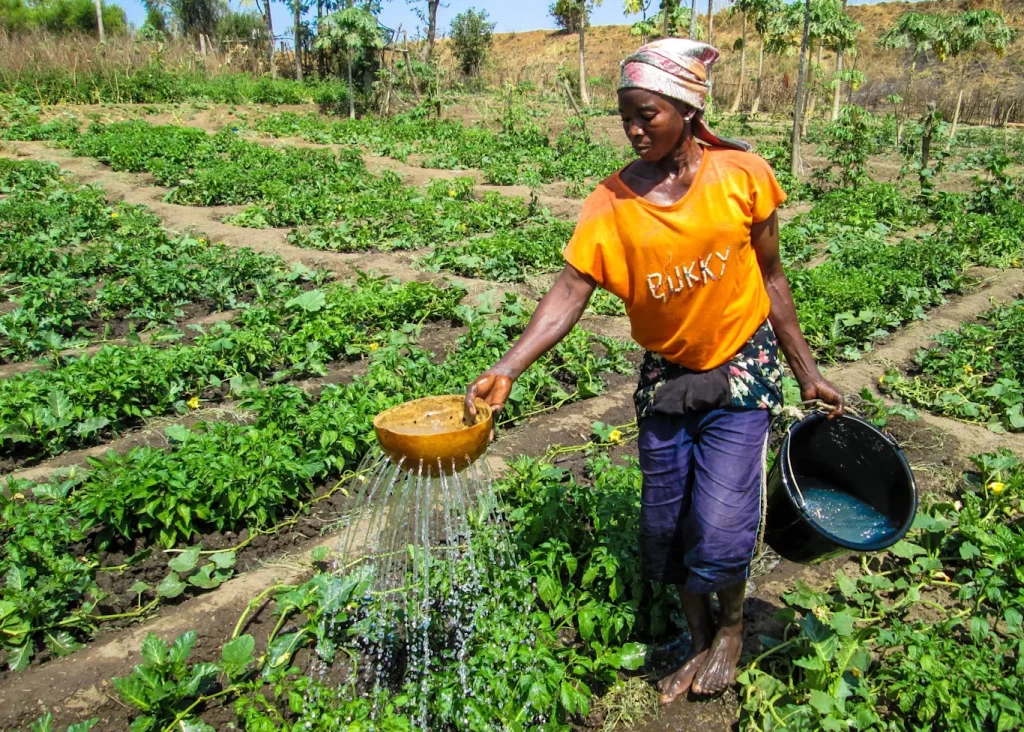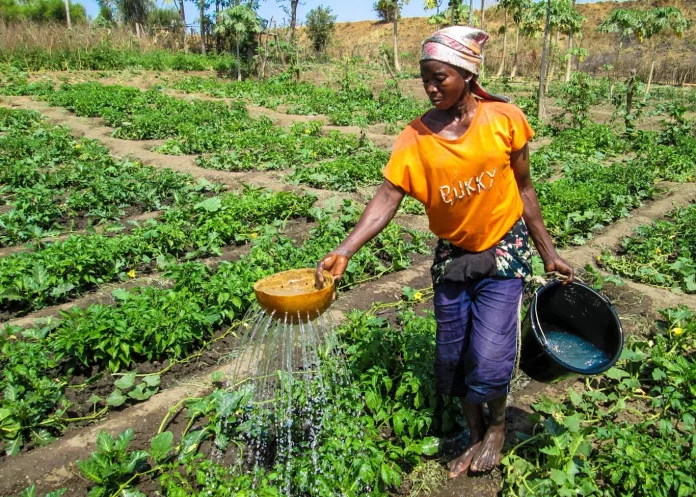In a dynamic agricultural landscape, staying ahead means adopting practices that are not only environmentally sustainable but also economically rewarding. Sustainable farming practices are no longer a luxury, it’s a necessity for farmers looking to thrive in a changing climate while maximizing yields and profits. From innovative water-saving techniques to soil fertility management, these game-changing strategies help farmers “profit more and waste less,” ensuring long-term success.
If you’re a farmer, agribusiness owner, or aspiring agriculturist in Ghana or Africa, this guide will equip you with practical insights and actionable steps to transform your farm. With the right blend of sustainable practices, you can boost productivity by as much as 30%, cut input costs, and reduce waste, all while contributing to a healthier planet. Don’t miss out on the proven methods that are reshaping Ghanaian agriculture today.
Crop Diversification for Resilience and Growth
Relying on a single crop can be risky in the face of climate change and market fluctuations. Crop diversification involves planting a variety of crops to spread risk, improve soil health, and access multiple revenue streams. In Ghana, farmers combining cocoa with cassava, plantains, or maize have experienced more stable incomes and better soil health.
By adopting crop diversification, farmers can improve profit margins by up to 20%-25%, as diverse crops reduce dependency on one income stream. Ignoring this approach could lead to losses of 15%-20% during poor yield seasons.
Conserving Water through Smart Irrigation
Water scarcity is a growing challenge for Ghanaian farmers. Adopting water-saving irrigation systems, like drip irrigation, ensures crops receive the exact amount of water they need, reducing waste and increasing productivity. Rainwater harvesting systems are another sustainable solution for the dry seasons.
Farmers using efficient irrigation can boost profits by 15%-20% due to improved yields and reduced water costs. Without these systems, losses could rise to 10%-15%, especially during droughts.

Organic Fertilizers for Healthy Soil and Crops
Chemical fertilizers may promise quick results, but they can degrade soil health over time. Organic fertilizers—compost, animal manure, or biochar—nourish the soil sustainably and reduce input costs. Ghanaian farmers integrating organic solutions report healthier crops and longer-lasting fertility.
Using organic fertilizers, one of the key sustainable farming practices, can increase margins by 10%-15% through improved soil productivity and lower expenses. Skipping this practice could lead to degraded soils and losses of 10%-12% over time.
Integrated Pest Management (IPM) for Safer Farming
Over-reliance on chemical pesticides can harm the environment and lead to pest resistance. IPM combines biological controls, crop rotation, and natural repellents to manage pests sustainably. For instance, neem extracts are widely used in Ghana to deter insects naturally.
Adopting IPM practices can increase profits by 12%-18% by reducing chemical costs and preventing pest outbreaks. Ignoring IPM could result in crop losses of 15%-20%, especially in pest-prone areas.
Read Also: Synthetic Chemicals – Is it the best way to deal with Weeds, Insects and Diseases in Crops?
Soil Fertility Management with Mulching and Cover Crops
Healthy soil is the cornerstone of sustainable farming. Mulching and cover crops protect soil from erosion, retain moisture, and enhance fertility. Leguminous cover crops like cowpeas and mucuna are popular in Ghana for their ability to fix nitrogen in the soil.
These practices can boost profit margins by 18%-25% through better yields and reduced fertilizer use. Without them, soil degradation can lead to losses of 20%-25%, especially on erosion-prone lands.
Adopting Renewable Energy for Farm Operations
Switching to renewable energy sources like solar-powered irrigation pumps reduces long-term operational costs and environmental impact. Ghana’s abundant sunlight makes solar energy a practical choice for smallholder farmers.
Farmers can save 20%-30% on energy expenses with renewable solutions, directly increasing profitability. Failing to adopt these options could result in energy-related losses of 15%-20% as fuel prices rise.
Digital Tools for Market Access and Farm Management
Leveraging digital platforms to track yields, manage expenses, or connect with buyers can transform a farm’s efficiency. Mobile apps tailored to Ghana’s agricultural market enable farmers to access real-time information and improve decision-making.
Farmers using digital tools can see profit increases of 10%-15% due to better market access and streamlined operations. Without digital solutions, inefficiencies could lead to losses of 10%-12% annually.
Agroforestry for Climate Resilience
Combining trees with crops or livestock fosters biodiversity, improves soil health, and enhances resilience against climate shocks. Agroforestry systems like cocoa with shade trees are increasingly popular in Ghana.
Adopting agroforestry can raise margins by 15%-20% through diversified income and better crop performance. Ignoring this practice could result in losses of 12%-18%, particularly in degraded environments.
Final Thoughts on Sustainable Farming Practices
Sustainable farming practices are not just about protecting the environment—it’s a proven path to better profits for farmers. By embracing these Sustainable farming practices, you not only secure your financial future but also contribute to a resilient agricultural system that benefits everyone. Act now, because every season counts.


